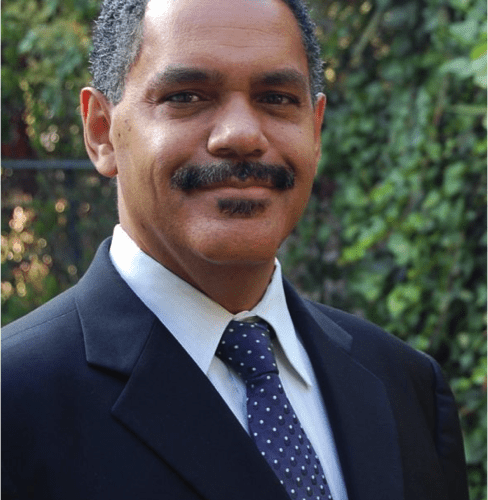Music Career Finder
Survey Start
College, Conservatory, or University Music Teacher
Career Overview
Educates students in music theory, history, composition, performance or music business studies at an institute of higher education.
Alternate Titles
Music Instructor, Music Teacher, Lecturer, Instructor, Professor, Adjunct Professor, Assistant Professor
Avg. Salary
$50,934
Salary Range
$31K – $88K1

How To Become a College, Conservatory, or University Music Teacher
- Career Description
- Salary
- Career Outlook
- Career Path
- Experience & Skills
- Education & Training
- Additional Resources
- Sources
- References
Career Description
University Music Teacher Raynor Carroll teaches percussion. As a Lecturer, his job duties are similar to those of a fully-tenured Professor, although with less time on campus. “I teach once a week, on Tuesdays, at UCLA,” he says. “I arrive around 10:00 am. and prepare material for my day. I teach private lessons from 11:00 a.m. until 7:00 pm. with a one-hour break in the middle.
“Private lessons include warm up material, technical exercises, etudes and solos, orchestral and ensemble repertoire, and, if time permits, sight-reading. My day concludes with a one-hour studio seminar class at 7:30pm. All of the percussion majors attend this class.”
“Subjects include sectionals, master classes, instrument repair and maintenance, and detailed technique on instruments not covered in private lessons (tambourine, triangle, cymbals, bass drum, castanets).”
College, University, and Conservatory Music Teachers work primarily with students and other faculty. The composition of a school’s Music Department varies based on the institution’s size and budget, but generally speaking, it will consist of Teaching Assistants, Lecturers, Adjunct Professors, Associate Professors, Assistant Professors, and full-fledged Professors.
They also work with other university staffers who do not teach but handle the adminstrative work of the department.
Salary
On average, College, University and Conservatory Music Teachers earn approximately $51,000 annually. The salary range for College, University and Conservatory Music Teachers runs from $31,000 to $88,000.
How a university-level teacher earns income differs based on the position he or she holds at the school. Carroll says, “I am a Lecturer so I’m paid based on the number of students I teach. Ladder faculty receive a salary based on their workload.” This includes Professors, Assistant Professors, and Associate Professors. Adjunct Professors, on the other hand, are contract employees.
Hey, what do you think about trying our new Music Career HelperMusic Career Helper really quick? It’s totally free and could help get your career moving fast! Give it a try. It’s totally free and you have nothing to lose.
Career Outlook
The work lifestyle of a university-level Music Teacher varies based on their position within the faculty. For most tenure-track Professors, teaching, lesson planning, and office hours mean they’re on campus most of the time. Adjuncts and Lecturers spend less time at the college, university, or conservatory, which can be a positive or a negative, depending on their career and financial goals.
As a Lecturer, Carroll says, “I am not full-time, so, I teach one day a week plus various other days in attending concerts, recitals, and meetings. With this type of schedule, I can easily manage my performance and professional commitments.”
Career Path
University-level music instructors begin their careers while still in graduate school by serving as Teaching Assistants. After receiving their advanced degrees, they may land a gig as an Adjunct Professor, Lecturer, or Assistant Professor.
In the academic world, advancement is based on getting on a tenure-track, which means the Teacher will receive a lasting appointment to staff, plus benefits such as paid holidays, insurance, and so on. Tenure-track positions include (in order of advancement), Assistant Professor, Associate Professor, and full Professor.
Once they’ve achieved professorial rank, they may go on to become a Distinguished Professor (or Endowed Chair); this means the Teacher has full professorial ranking and privileges plus an increased salary, usually tied to an endowment from a foundation, company, private individual, or the university itself.
Department Chairs are the top administrative posts within each college. Of course, landing employment with a prestigious university also represents significant career advancement.
Carroll recommends aspiring university-level teachers start their careers instructing younger students. He says, “After finishing your education (Ph.D. recommended), begin teaching in a middle or high school. After gaining some practical experience, apply for city college jobs and eventually university, college, or conservatory level positions.”
- Find a mentor, in this case, a well-respected, experienced, University Teacher. Ask them what they did to get where they are, what was most beneficial for them, what was most detrimental, what advice do they have for you? Observe what they do [and] how they do it — and ask why.
- Do as much teaching now as you can possibly do. Next to your education, practical experience is invaluable.
- Work in your community. Reach out to students who need direction in their training.
Experience & Skills
A College, University, or Conservatory Music Teacher must have “experience teaching at a high school or city college and good technical facility on their instrument” in order to instruct students in music, Carroll says. Working at another institution of higher education will not only help with understanding how to teach others but in knowing how the academic world functions.
Technical musical abilities can be gained by performing with orchestras, bands, choirs, and other musical groups over time. Continuing studies and learning another instrument besides one’s primary instrument can also help a Teacher with their performance and instructing abilities.
Obviously, the desire to help others learn is a must-have personality trait for college music instructors. Adaptability is also key. What other aspects of a Teacher’s personality will help them succeed in the world of academia? Carroll says they “must be able to communicate well with others and enjoy all aspects of music (teaching, performing, researching, mentoring, etc.) Having good organizational skills is also necessary.”
Education & Training
“Positions at the university/college level are extremely competitive,” Carroll says. “A doctoral degree is necessary.” The academic path towards a career as a university-level instructor can vary, although most people tend to major in Music Education or Piano or Vocal Pedagogy (depending on their area of expertise). Other Teachers come from a Performance background, although an education-related degree is preferred for tenure-track roles.
Additional Resources
College, University and Conservatory Music Teachers may be members of the Music Teachers National Association or the National Association for Music Education, the two biggest professional organizations for music instructors. Carroll says, “For percussionists, I recommend joining the Percussive Arts Society. This is an organization focused on all aspects of percussion: performing, studying, research, teaching, instrument design and maintenance. They offer a wealth of information on their website, publications, [and at] conventions.”
Sources

Raynor Carroll
Raynor Carroll is a Lecturer in Percussion Music at UCLA’s Herb Alpert School of Music. Since 1983, he has played timpani and percussion for the Los Angeles Philharmonic, performing under such esteemed Conductors as Andre Previn, Leonard Bernstein, Pierre Boulez, and Gustavo Dudamel. He has also recorded film soundtracks for Composers Maurice Jarre, Arthur Rubinstein, Alan Silvestri, Terence Blanchard, and David Newman.
He is an alumnus of Cal State LA. He is endorsed by Remo and Sabian percussion products. He is the founder/owner of Batterie Music, a publishing company with a focus on music for the symphonic percussionist. For more advice from Carroll, check out his appearance on the YMF Connections podcast.
References
- 1. "Music Instructor Salaries in United States". Glassdoor.com. published: Nov 26, 2019. retrieved on: Dec 167, 2019